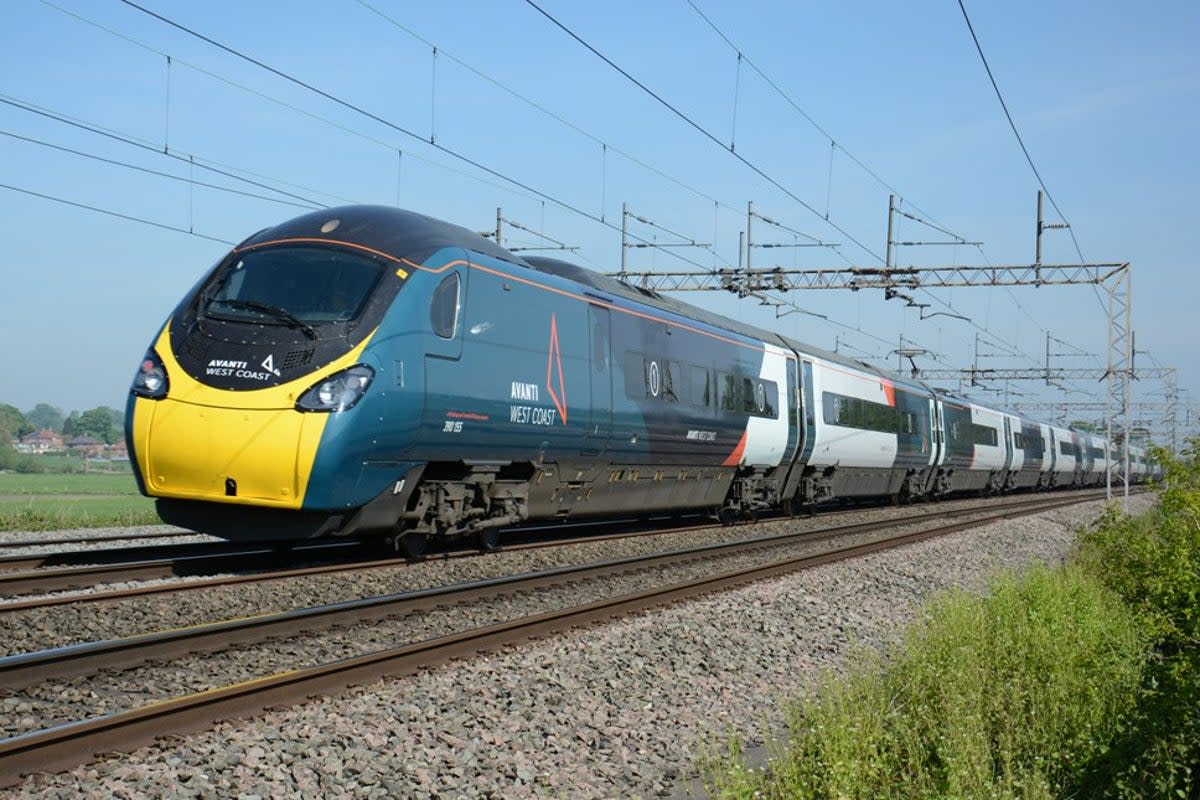Avanti given six months to improve services on West Coast Main Line

Troubled rail firm Avanti has been given a six months’ stay of execution and ordered to “drastically” improve services on the West Coast Main Line.
The Department for Transport had come under pressure to strip Avanti of the UK’s flagship franchise – which links London with Birmingham, Manchester, Liverpool and Glasgow – after it cut services to cope with a shortage of drivers.
But Transport Secretary Anne-Marie Trevelyan on Friday announced a “limited extension” until April 1, by which time it has to add at least 80 more train services on weekdays.
She said: “We need train services which are reliable and resilient to modern day life. Services on Avanti have been unacceptable and while the company has taken positive steps to get more trains moving, it must do more to deliver certainty of service to its passengers.
“We have agreed a six-month extension to Avanti to assess whether it is capable of running this crucial route to a standard passengers deserve and expect.”
However, Labour’s shadow transport secretary Louise Haigh described the move as a “reward for abject failure, and a slap in the face for passengers”.
She said: "This failing operator has caused travel misery, and the Government’s answer is to hand over millions more in taxpayers’ cash and consign passengers to another six months of chaos.”
The company cut its timetable this summer after drivers refused to work overtime, resulting in sudden cancellations. It meant that the Manchester-London service was reduced to one train an hour.
Passengers continue to arrive at Euston to find their train not running, while tickets have only been released several days before the day of travel.
Andy Burnham, the mayor of Greater Manchester, this week called on Ms Trevelyan to strip Avanti West Coast of its franchise unless it guaranteed at least two trains an hour to London by the end of the month.
The company had not planned to move to an improved timetable until December 11, according to Mr Burnham.
Graham Sutherland, FirstGroup chief executive, Avanti West Coast’s parent company, said: “We are committed to working closely with government and our partners across the industry to deliver a successful railway that serves the needs of our customers and communities.
“Today’s agreement allows our team at Avanti West Coast to sustain their focus on delivering their robust plan to restore services to the levels that passengers rightly expect.”
The DfT announcement recognised that almost 100 more drivers will have been hired by December and that the London-Manchester and London-Birmingham services were getting “closer to normal”.
The extension is designed to give the firm time to improve services. Avanti’s performance - it was the least reliable operator in the UK - will then be reviewed.
It has been told to deliver a “reliable” increase in weekday trains from about 180 to 264 a day and improve ticket availability.
But there was recognition from the DfT that its problems “stem from old working practices” that forces it to rely on drivers to work overtime.
“This antiquated practice shows just how urgent it is for us to modernise our railways, so passengers benefit from reliable services that don’t rely on the goodwill of drivers volunteering to work overtime,” the DfT said.
The awarding of the next West Coast franchise is complicated by the arrival of HS2 services, which will initially run between Old Oak Common in north London and Birmingham from around 2030.
Manuel Cortes, general secretary of the TSSA union, said: “This contract extension exposes the ideological insanity of putting privatisation before services and passengers. Avanti have failed yet are rewarded for that failure with an extension to their contract.
“These vital rail services must be brought into public ownership where they can be run effectively and in the interests of passengers, staff and the taxpayer. We’ve seen private operators fail time and again, it’s time to draw a line under the failed experiment of fragmentation and privatisation of our railways.”

 Yahoo Movies
Yahoo Movies 
